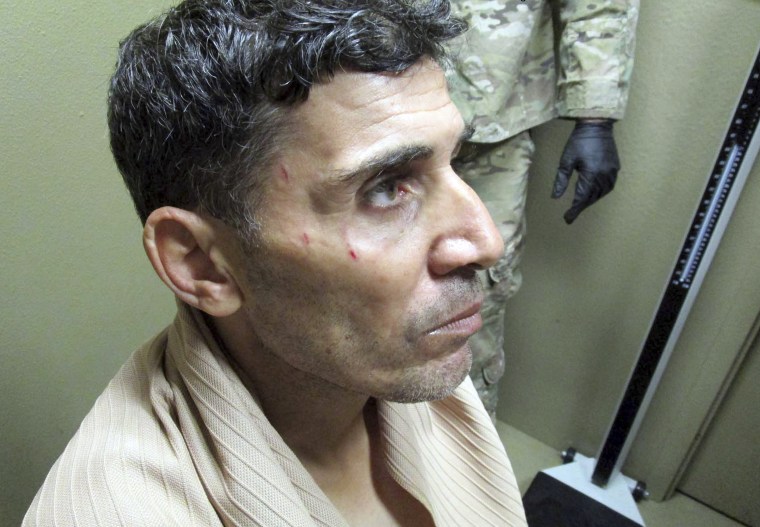A Libyan man convicted in connection with the deadly 2012 attack on an American diplomatic compound in Benghazi was sentenced Thursday to 19 years in prison.
Mustafa al-Imam, 47, was sentenced to 236 months after being convicted by a jury in June on charges of conspiracy to provide material support and resources to terrorists and maliciously destroying and injuring a dwelling and placing lives in jeopardy, the Justice Department said.
But al-Imam was not convicted of other counts, which included allegations of killing a person while attacking a federal facility.
"We have not rested in our efforts to bring to justice those involved in the terrorist attacks on our facilities in Benghazi, which led to the death of four courageous Americans,” Assistant Attorney General for National Security John C. Demers said in a statement.
U.S. Ambassador Christopher Stevens, and Glen Doherty, Sean Smith, and Tyrone Woods were killed Sept. 11, 2012, when militants stormed the compound in Benghazi.
Smith was a State Department communications specialist, and Woods and Doherty were CIA security contractors. The initial attack killed Stevens and Smith and set the mission ablaze. Woods and Doherty were later killed at a CIA annex.
The attack prompted an outcry from some Republicans and others, who blasted the Obama administration's response.
House Republicans led a more than two-year investigation, and its report detailed an array of bureaucratic miscues and inter-agency blunders but did not specifically blame former Secretary of State Hillary Clinton for events that led to the deaths of four Americans.
President Donald Trump referred to Benghazi when announcing U.S. troops would be sent to the Middle East after thousands of people stormed the compound of the American embassy in Baghdad in late December.
Defense attorneys for al-Imam said he made a "tremendous mistake" by damaging and looting U.S. property after the attacks, The Associated Press reported. But, they insisted, there was no evidence that he intended to harm any Americans, noting jurors could not reach a verdict on the murder charges al-Imam faced.
Al-Imam was captured Oct. 29, 2017, in a raid in Liya by a team of U.S. special forces and members of the FBI's Hostage Rescue Team. He was then taken to a U.S. Navy ship, where he was interrogated first by a team of intelligence officers and then by a separate group of FBI agents.
Another Libyan man accused by the U.S. government of being the leader of an extremist militia involved in the Benghazi attack, Ahmed Abu Khatallah, was convicted in 2017 of helping to plan and carry out the attack.
Khatallah was acquitted of the most serious charges — that his actions lead to the deaths of four Americans — and he was convicted of destroying U.S. government property, discharging a firearm during a violent crime, and two counts of providing support to a terror organization.
Khatallah was sentenced to 22 years in prison in June 2018.

